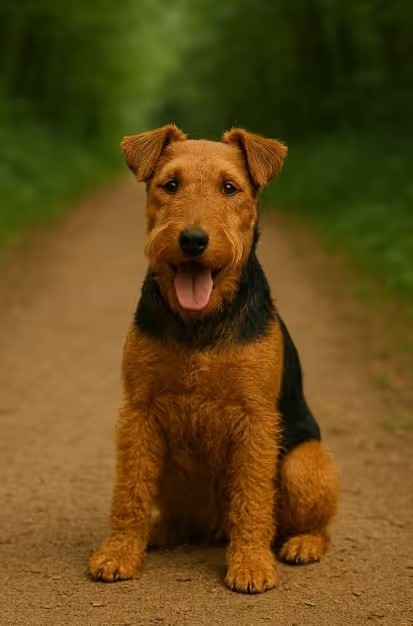The Welsh Terrier is a spirited, intelligent, and friendly medium-sized terrier with a distinctive wiry coat and an adventurous personality. Originally bred to hunt fox, otter, and badger in Wales, this breed is known for its courage, agility, and cheerful disposition. Welsh Terriers thrive in active households that can provide daily exercise, mental challenges, and consistent training, making them excellent companions for both families and experienced dog owners.

The Welsh Terrier has deep roots in Wales, where it was developed in the 18th and 19th centuries to hunt vermin, foxes, and otters across rugged countryside. Known as a tenacious yet adaptable working terrier, the breed was valued for its determination and ability to navigate rough terrain. It closely resembles the Airedale Terrier but is smaller in size. Recognized by the Kennel Club (UK) in 1886 and by the American Kennel Club in 1888, the Welsh Terrier has since become a beloved companion while retaining its working instincts.
A sturdy, square-proportioned terrier with a wiry coat and distinctive facial furnishings.
The Welsh Terrier’s wiry coat requires regular maintenance to stay healthy and neat.
A lively and athletic breed that needs daily physical and mental exercise.
Intelligent and eager to please, but with a dash of terrier stubbornness.
Balanced nutrition is essential to support their energy and overall health.
Generally healthy, but may be prone to a few breed-specific conditions.
Welsh Terriers are available through reputable breeders and terrier rescues.
Are Welsh Terriers good family dogs?
Yes, they are affectionate, playful, and good with respectful children.
Do Welsh Terriers bark a lot?
They can be vocal as watchdogs but respond well to training.
Are they good apartment dogs?
Yes, if exercised daily; they adapt well to various living spaces.
Do they shed?
They shed lightly compared to many breeds, especially with regular grooming.
Are Welsh Terriers easy to train?
Yes, they are intelligent, but their independent streak requires consistent training.
Do they get along with other pets?
They can with proper socialization but may chase smaller animals.
How much grooming do they need?
Regular brushing and hand-stripping are important for coat health.